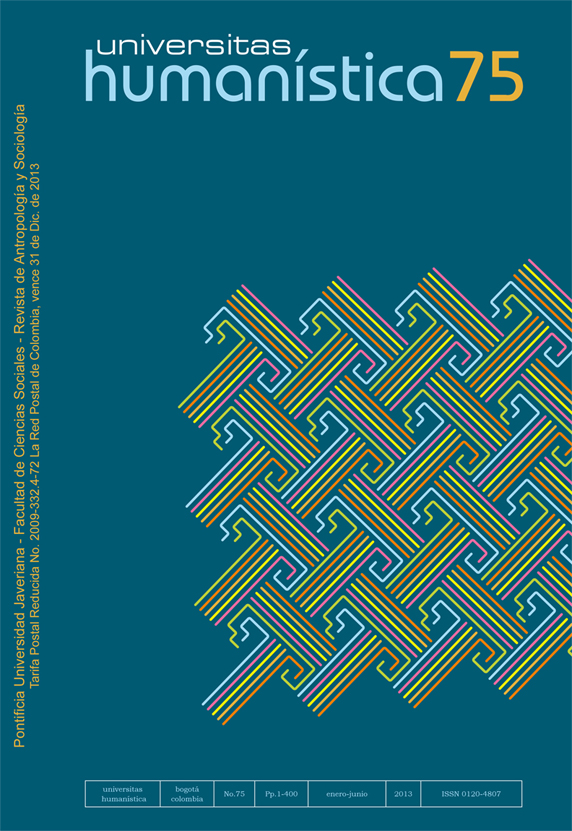Abstract
This paper examines some of the relationships between the ethnographic experience andknowledge that has been deployed on the ethnicity of the Great Chaco region in the first decadeof the XXIst century in the argentinian anthropology. Considering that it is through “the livedexperience” in the field that knowledge is produced, there are two conditions as interpretivefocus: the condition of displacement, otherness and space condition. It is argued that each ofthese conditions suggest to the recent ethnography of Gran Chaco, as field of experiences andpractices that are temporarily, politically and historically located in relation to configurations,anthropological trajectories and subjectivities, whose heterogeneity is intertwined with theparticularity of each lived experience in “the ethnographic field”. The Cartesian dual dimension ofthe field work is questionned and the article shows how the epistemological dispute, by the Chacoethnic alterity, is ascribed to specific forms of knowledge of the national anthropological academy.
This journal provides immediate open access to its content on the principle that making research freely available to the public, encourages greater global exchange of knowledge.
The journal Universitas Humanística is registered under a Creative Commons Attribution 4.0 International Public License. Thus, this work may be reproduced, distributed, and publicly shared in digital format, as long as the names of the authors and Pontificia Universidad Javeriana are acknowledged. Others are allowed to quote, adapt, transform, auto-archive, republish, and create based on this material, for any purpose (even commercial ones), provided the authorship is duly acknowledged, a link to the original work is provided, and it is specified if changes have been made. Pontificia Universidad Javeriana does not hold the rights of published works and the authors are solely responsible for the contents of their works; they keep the moral, intellectual, privacy, and publicity rights.
Approving the intervention of the work (review, copy-editing, translation, layout) and the following outreach, are granted through an use license and not through an assignment of rights. This means the journal and Pontificia Universidad Javeriana cannot be held responsible for any ethical malpractice by the authors. As a consequence of the protection granted by the use license, the journal is not required to publish recantations or modify information already published, unless the errata stems from the editorial management process. Publishing contents in this journal does not generate royalties for contributors.


